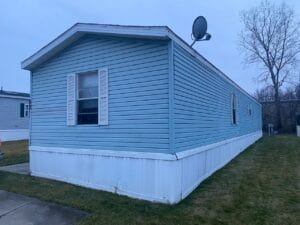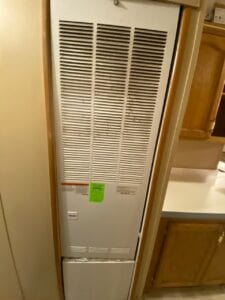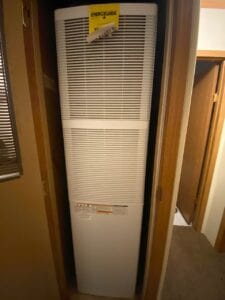5 Best Mobile Home Furnaces 2025
Expert Reviews, Buyer's Guide & Installation Tips - Don't Get Caught in the Cold!
❄️ Winter is Coming - Don't Wait Until Your Furnace Fails!
Mobile home furnaces work harder and fail faster than regular furnaces. Replace yours before it's too late!
✅ Fast Shipping Direct to Your Door - No Driving Around Looking for Hard-to-Find Parts!
🏆 Quick Picks: Best Mobile Home Furnaces 2025
🥇 Overall Best
Goodman Mobile Home Furnace
Reliable, efficient, perfect for most mobile homes
Check Price on Amazon →💰 Best Budget
Electric Mobile Home Furnace
Affordable option with easy installation
Shop Electric Furnaces →📊 Mobile Home Furnace Comparison Chart
| Furnace Type | Best For | Price Range | Efficiency | Installation | Our Rating |
|---|---|---|---|---|---|
| Goodman Gas | Most Mobile Homes | $800-$1,500 | ⭐⭐⭐⭐⭐ | Professional | 🥇 Best Overall |
| Electric Forced Air | Budget Conscious | $400-$800 | ⭐⭐⭐⭐ | DIY Friendly | 💰 Best Value |
| Propane Unit | Rural Areas | $700-$1,200 | ⭐⭐⭐⭐⭐ | Professional | 🔥 Most Reliable |
🔥 Detailed Mobile Home Furnace Reviews

Why We Love It: Goodman furnaces are specifically designed for mobile homes and have been the industry standard for reliability and efficiency. This furnace delivers consistent heat while fitting perfectly in tight spaces.
🏠 Perfect Fit
Compact design made specifically for mobile home dimensions
💪 Reliable Performance
80% AFUE efficiency rating saves money on heating bills
🔧 Easy Maintenance
Simple filter access and standard replacement parts
🛡️ Safety Features
Built-in safety shutoffs and flame sensors
✅ Pros
- Industry-proven reliability
- Excellent parts availability
- Energy efficient operation
- Quiet operation
- Professional installation network
❌ Cons
- Higher upfront cost
- Requires professional installation
- Gas line connection needed

Perfect for: Budget-conscious homeowners who want reliable heating without the complexity of gas lines. Electric furnaces are safer, easier to install, and perfect for smaller mobile homes.
✅ Pros
- Lower upfront cost
- No gas line required
- Safer operation (no combustion)
- Easier DIY installation
- Clean, quiet operation
❌ Cons
- Higher electric bills
- Less heat output
- Useless during power outages

Best Choice For: Rural areas without natural gas access. Propane furnaces offer excellent efficiency and reliability, making them perfect for mobile homes in remote locations.
✅ Pros
- Works anywhere (no gas lines needed)
- Very efficient heating
- Reliable in cold weather
- Lower operating costs than electric
❌ Cons
- Need propane tank refills
- Professional installation required
- Safety considerations
🚚 Why Buy Your Mobile Home Furnace Online?
Stop Driving Around Looking for Hard-to-Find Furnaces!
🏠 Mobile Home Specific
Local stores rarely stock mobile home furnaces. Online retailers specialize in manufactured home heating systems.
📦 Direct to Your Door
No more driving store to store! Get your furnace shipped directly to your mobile home.
💰 Better Prices
Online retailers have lower overhead = better prices than local HVAC shops.
📋 Easy Comparison
Compare models, read reviews, and check specs without salespeople pressuring you.
💡 Pro Tip:
Mobile home furnaces are specialty items that most local stores don't carry. Online shopping gives you access to the exact models designed for your home, with fast shipping right to your doorstep!
🛒 Mobile Home Furnace Buying Guide
How to Choose the Right Mobile Home Furnace
1. Calculate Your BTU Requirements
Mobile homes typically need 30-60 BTU per square foot depending on insulation and climate. A 1,000 sq ft mobile home usually needs a 40,000-60,000 BTU furnace.
2. Choose Your Fuel Type
- Natural Gas: Most cost-effective if available
- Propane: Great for rural areas
- Electric: Safest and easiest to install
3. Consider Your Budget
Remember to factor in installation costs ($500-$1,500) and annual operating expenses when comparing options.
4. Check Mobile Home Compatibility
Regular house furnaces WON'T work in mobile homes. You need a furnace specifically designed for manufactured housing.
⚠️ Important Safety Warning
Never attempt to install a gas or propane furnace yourself. Improper installation can lead to carbon monoxide poisoning or fire. Always hire a licensed HVAC professional for gas appliance installation.
🔧 Mobile Home Furnace Maintenance
Essential Maintenance Tasks
🌪️ Change Filters Monthly
Dirty filters are the #1 cause of furnace failure in mobile homes
🔍 Annual Professional Inspection
Catch problems before they become expensive repairs
🧹 Keep Vents Clear
Blocked vents force your furnace to work harder
🔧 Check Thermostat Settings
Proper settings save energy and extend furnace life
🚨 When Your Mobile Home Furnace Stops Working
Quick Troubleshooting Checklist
- Check the thermostat - Make sure it's set to "heat" and temperature is set correctly
- Replace the filter - A clogged filter can shut down your entire system
- Check the circuit breaker - Reset if tripped
- Inspect the pilot light (gas furnaces) - Relight if necessary
- Clear blocked vents - Remove any obstructions
🚨 When to Call a Professional
If you smell gas, hear strange noises, or the furnace won't stay lit - stop troubleshooting and call an HVAC technician immediately. These could be signs of dangerous problems.
❄️ Don't Wait Until It's Too Late!
Mobile home furnaces fail when you need them most. Order your replacement now and avoid emergency installation fees!
✅ Fast shipping to your door ✅ No driving around looking for parts ✅ Expert customer service ✅ Easy returns
❓ Frequently Asked Questions
What size furnace do I need for my mobile home?
For most mobile homes, you'll need 30-60 BTU per square foot. A 1,000 sq ft home typically needs a 40,000-60,000 BTU furnace. Factors like insulation, climate, and ceiling height affect this calculation.
Can I use a regular house furnace in my mobile home?
No! Mobile homes require specially designed furnaces that fit the unique dimensions and ductwork configurations. Regular furnaces won't fit properly and may not meet safety codes.
How long do mobile home furnaces last?
With proper maintenance, a quality mobile home furnace should last 15-20 years. However, mobile home furnaces often work harder due to poor insulation, so regular maintenance is crucial.
Should I choose gas or electric for my mobile home?
Gas is typically more cost-effective to operate if you have access to natural gas lines. Electric is safer and easier to install but costs more to run. Propane is a great middle-ground option for rural areas.
📚 Related Articles
Learn more about mobile home heating:

